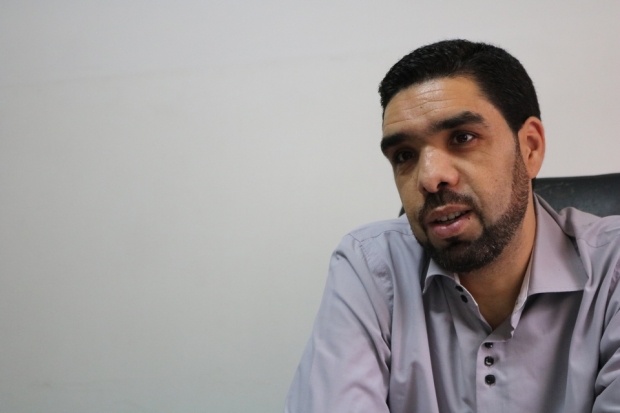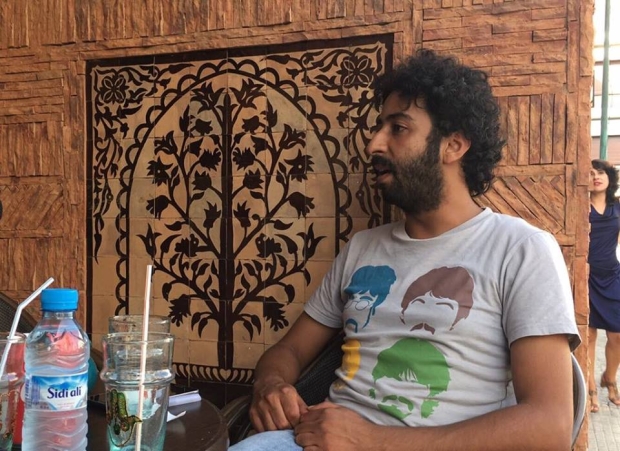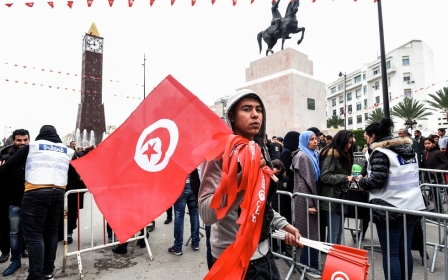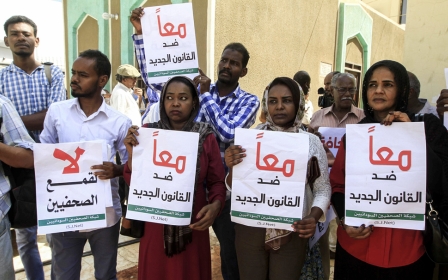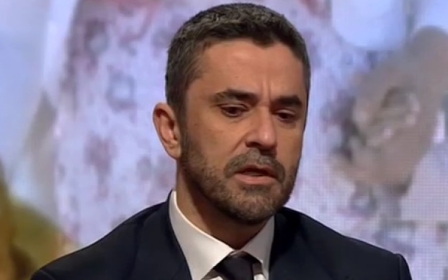Morocco's go-it-alone news outlets feel government squeeze
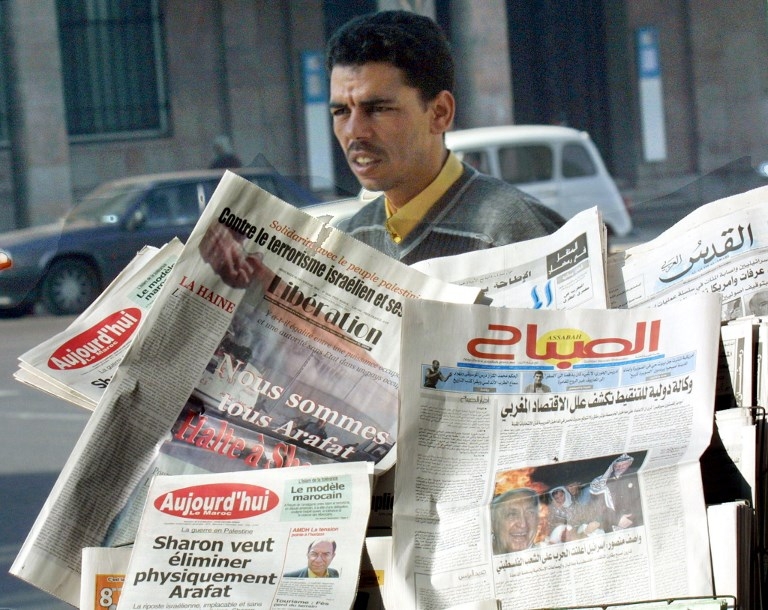
CASABLANCA, Morocco - Mohamed Ezzouak, who was the child of a Moroccan factory worker in France and a stay-at-home mother, grew up craving a return to Morocco, which he left when he was two years old.
As a young man, he landed a job that would be the envy of many Moroccans, that of a business consultant working in France. But his passion was politics and media back home.
"In high school, I was very interested in learning about my identity and about the heritage and history of Morocco," Ezzouak, 40, the eldest of six children, said. "From there was born a pretty crazy dream ... to build a life in Morocco."
With no guidelines or restrictions and only himself as staff, he started a news website that served as an outlet for his frustration with his country's politicians. In the 16 years since then, he has moved the operation to Morocco.
The site - Yabiladi - now has six full-time journalists and receives more than six million page visits a month, proving particularly popular with the Moroccan diaspora.
But Yabiladi, which translates to "Oh, my country," along with hundreds of other news sites, is in danger of being shut down under a new media law that imposes licensing requirements. Critics allege that the new law restricts freedom of expression and curtails critical coverage under the guise of making journalism more professional.
"It is part of Morocco's dramatic reversal of press freedoms," Sherif Mansour, Middle East and North Africa programme coordinator for the New York-based Committee to Protect Journalists, said via email. "The law restricts online journalists and forces a lot of limitations on starting new online outlets.
"Morocco is joining a large group of governments worldwide who see the internet as an enemy and a hurdle in their effort to control information," Mansour said.
Morocco's media scene
According to a 2016 report from Freedom House, Morocco has a history of keeping a tight hold on news coverage. Outlets that follow government-approved narratives - many of which receive government funding - are favoured by advertisers. On the other hand, outlets that maintain an independent narrative, receive little support from the government.
At the same time, journalists have been subject to steep fines or prison sentences if they speak too candidly about taboo issues.
The new law states that the director of an online media outlet must hold a press card, a certification that previously was not required for online outlets.
In a statement, the communications ministry called the reforms an "essential step aimed at consolidating the democratic process and the foundations of the rule of law".
Meanwhile, other government officials said the law represents an improvement in press freedoms, since it eliminates jail time for journalists who criticize the government even if the penal code still punishes non-violent speech.
Other supporters of the new law said that it will weed out "fake news" reported by amateurs and those with an axe to grind.
At the same time, to Achraf Tribak, director of Hespress research centre in Rabat, the third most-visited website in Morocco, many people do journalism as a "hobby," resulting in poor quality journalism and a lot of "fake news".
According to Tribak, the new licensing laws are necessary to ensure journalists have the education, training and income needed to practice professionally.
Hespress has a history of receiving government funding, but Tribak says that has not prevented it from criticising government actions. Hespress had no problem getting certified after the new code passed.
But according to Ezzouak, the new requirements are likely to hurt small news sites and citizen journalists, which tend to be more critical of officials.
Difficult requirements
The new law entails that online news outlets show proof that the chief editor holds a press card or the website will be closed down.
But in order to obtain a press card, journalists must have acquired a degree in a journalism-related field, have three years of experience, and prove that they work for a "legitimate news outlet". Online websites are not considered legitimate news outlets however, unless the director holds a press card.
Websites had until last August to conform. Many are still struggling to do so. Ezzouak is working with the Ministry of Communications to receive his press card and to certify Yabiladi. So far, he has had no luck.
Although Ezzouak has not been educated as a journalist, he argues that anyone should be able to practice professionally
"Journalism is not just a certificate," he told Middle East Eye while sitting in his office in Casablanca's business district. “Still, the majority of the journalists at Yabiladi hold a journalism degree.”
Furthermore, for online publications to obtain press cards for their reporters, they must prove that they pay their reporters a minimum wage of at least 5,800 Moroccan dirhams ($640) per month. That can be a hefty price for small websites.
'An attempt to control'
Since the Arab Spring, Morocco has witnessed a sharp rise in the flow of online information.
Before the new press code, there was no legal framework to regulate the large volume of online information.
But with the number of internet users increasing to 58 percent in 2017 - a more than 10 percent rise since 2011 - opponents of the law believe it has been part of an attempt by the government to crackdown on journalists and activists.
"It [the absence of control] is very bad for the government because it allows for the truth to be online," he said.
According to the 2016 Freedom on the Net report from US-based Freedom House, the Moroccan authorities have a history of using "nuanced means to limit online content and violate users' rights". Those means include demanding self-censorship, putting prominent journalists on trial and pressuring companies to pull advertising as signs of disfavour.
Crackdown on journalists
Morocco was ranked at 133 out of 180 in the World Press Freedom Index according to a ranking collated by Reporters Without Borders.
The New York Times issued an editorial in September calling for Morocco to listen to its people's demands and withdraw security forces. Reporters Without Borders condemned authorities for "deliberately obstructing the Moroccan and foreign reporters who have been trying to cover the unrest."
The crackdown included the imprisonment of many notable activists and journalists, including Hamid El Mahdaoui, editor of Badil.info, and citizen-journalists such as Mohamed El Asrihi and Jawad al-Sabiry of Rif 24, Houssein al-Idrissi of Rif Press, according to Reporters Without Borders.
Also arrested at the time was 31-year-old investigative journalist, Omar Radi, who says he was detained several times as a form of intimidation.
"They were after me. And they just wanted to show me they were after me," he told MEE as he recalled that he was interviewing sources in Al-Hoceima - the birthplace of the Hirak movement - when officers took him into custody, claiming he was publicly intoxicated.
For a year, Radi and a colleague have been trying to start an independent, investigative news site, Bidoon, but neither holds a press card. Radi has applied twice, but has been denied the authorisation without being given any explanation.
"This law is worth disobeying," he said vowing to keep going even if he does not manage to get a press card.
Despite the uncertainty, Ezzouak is optimistic about getting Yabiladi certified. His real worry, he said, is about bloggers and the citizen-journalists who may be silenced.
"I think we can have pluralism, I think we need to have it," he said. "I'm not a militant journalist, I'm not a citizen journalist, I'm not a blogger, but I think we need to let them talk and write about their problems."
"If we love this country, if we love the people of this country, if we want to contribute to changing some things in this country, we have to put ourselves in jeopardy," he said.
Lara Korte spent several months in Morocco on an SIT Study Abroad program and produced this story in association with Round Earth Media.
This article is available in French on Middle East Eye French edition.
New MEE newsletter: Jerusalem Dispatch
Sign up to get the latest insights and analysis on Israel-Palestine, alongside Turkey Unpacked and other MEE newsletters
Middle East Eye delivers independent and unrivalled coverage and analysis of the Middle East, North Africa and beyond. To learn more about republishing this content and the associated fees, please fill out this form. More about MEE can be found here.


